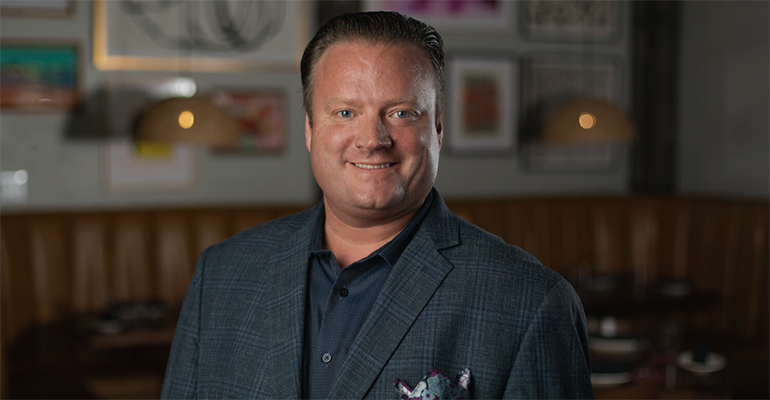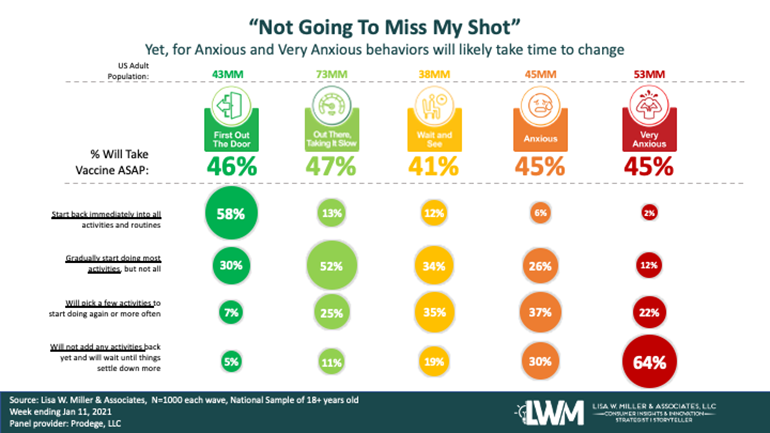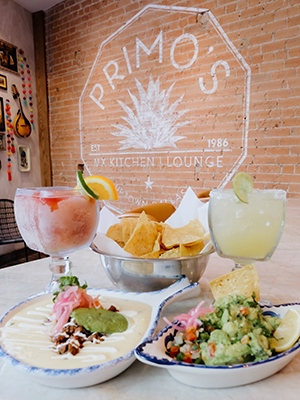Restaurant operators say the year of pandemic-related shutdowns has changed habits and preferences. And those changing consumer trends are reshaping the industry, from the way restaurants operate, to their dependence on off-premise and the design of brick-and-mortar locations. As the COVID vaccine reaches more people and the economy settles into a new post-pandemic sense of normalcy, this three-part series will take a look at how restaurants are adapting for the new consumer.
While few are expecting a return to the flappers and bathtub gin in a Roaring Twenty-Twenties, a post-vaccine restaurant industry shows signs of being more profitable with a consumer who will be, literally, calling the shots.
After a year of dealing with on-and-off restrictions and up-and-down sales, restaurant operators have sliced and diced their balance sheets to make them profitable. And consumers are expressing a giant bubble of pent-up demand that bodes well for the topline when COVID-19 pandemic vaccines roll out in large numbers.
Robert Hall, CEO of Dallas-based Refined Hospitality Concepts, said his company has opened three locations of Primo’s MX, a casual-dining Mexican concept, during the past year, with two additional locations announced in North Texas. The company also launched Sfereco, a meatball and pizza concept, during the pandemic, and it has two additional locations with more in the works.
Hall said he saw “a real reason for optimism” in the long term.
For example, catering and special events are beginning to return. “During the last several weeks,” he said in late January, ”we’ve seen consistent growth in catering requests of 8% to 10% week over week.”
Robert Hall, CEO of Dallas-based Refined Hospitality Concepts, said his company has opened three locations of Primo’s MX, a casual-dining Mexican concept, during the past year.
A recent National Restaurant Association survey of 1,000 U.S. adults found that pent-up demand was intense, with about 67% of consumers saying they were not eating on-premise as often as they would like.
“Baby Boomers really want to return to restaurants,” the survey found, “beating out Gen Z adults and Millennials when they say they aren’t eating on-premise at restaurants as often as they’d like.”
Women, at 74%, were more likely than men, at 60%, in saying they wanted to dine on-premise more often.
Lisa Miller of Dallas-based Lisa W. Miller & Associates, who has been working on a “Journey Back to Joy” research study since the pandemic was declared in March 2020, said consumers are emotionally connected to restaurants.
“The reality of it is, the anxious people and the very anxious people — about 45% of the people in my study — want to take the shots ASAP,” said Miller, who works with restaurant brands, “but among the very anxious people 64% of them will not change their behavior even after getting a vaccine.
Restaurants still need to be focusing on the experiential aspects of why consumers love to come to the brand in the first place. I call it: ‘leading with joy and then reassuring with safety.’”
Restaurant operators will also need to retain ways to make dining out a joyful occasion, such as not paring menus too far down to remove items that consumers expect to make them happy, Miller said.
Convenience they can’t refuse
The pandemic’s impact on U.S. foodservice sales was deep and significant in 2020. The National Restaurant Association estimated the total food and beverage sales fell 23.8% between 2018, when it was $864.3 billion, to 2020, when it dropped to $659 billion. The association predicts that will rise 11% in 2021, to $731.5 billion, but still far below the 2019 peak.
Mintel, the market analyst agency, expects the restaurant business to battle with stagnation for the remainder of this year.
“Even as dining rooms reopen on a state-by-state basis, consumers are likely to have concerns about dining out and have limited budgets to do so,” Mintel said in a January report. “Heightened by safety and sanitation practices and value-based promotions will be vital to gain consumer trust and woo back diners,”
The “Journey Back to Joy” research study from Lisa Miller of Dallas-based Lisa W. Miller & Associates.
Mintel suggested that operators this year, at least, will need to make their meals so convenient that customers can’t resist them.
In a recent consumer research study, Mintel found more Americans said they were always on the lookout for things that make their life easier (76%) than those who stuck to a budget (69%).
“Operators of all types, from fast casuals to fine-dining concepts, should consider making their meals hyper-accessible by adding drive-thru lanes and digitally enhanced curbside pickup options,” Mintel recommended.
Changing the model
Hall of Refined Hospitality Concepts said his restaurants have “been able to revise our business model to adapt to the lower capacity limitations currently facing our industry.
“By creating a lower cost structure with lower inventory requirements, we’ve been able to more aggressively grow,” he said, “While reduced capacity in restaurants has slowed the trajectory for restaurant growth, using those limitations in the business plans for new outlets allows for planned, slower growth. With new locations, we’re not trying to find shifts for a full restaurant, because we’re only hiring new staff to accommodate the numbers currently allowed by law.”
Because of pandemic restrictions, Refined Hospitality has changed its openings to phased-in schedules.
 Photo: Food at fast-casual Primo's, a Refined Hospitality concept that has opened two units during the pandemic.
Photo: Food at fast-casual Primo's, a Refined Hospitality concept that has opened two units during the pandemic.
“Like many restaurant operators, we’re using the opportunity to offer ghost kitchen options to more fully utilize our spaces. However, that strategy requires a very tactical look at area maps,” Hall said. “We’re literally working on growth models in North Texas built around creating concentric service circles so that we can maximize the number of households available to serve.”
The pandemic will impact the industry for a long while, Hall predicted.
“Smaller footprint stores will be the trend,” he said. “Virtual concepts and ghost kitchens will continue to support revenue models. The traditional large chain model will evolve and change.”
The pandemic has also changed attitudes and governmental restrictions on what people are eating and drinking at home, Hall said, especially with many states modifying cocktails or mixes to be delivered.
For the rest of the ‘20s, Hall said he’s seeing an evolution toward healthier and more environmentally friendly expectations from diners.
“The use of vegetable proteins is becoming more mainstream and in demand,” he said. “Becoming decadent and playful with these products while maintaining a focus on a healthier lifestyle and environmentally conscious evolution will be critical for long-term success.”
Hall said he expects steakhouses to offer items like cauliflower steaks and eggplant steaks prominently, “not just buried in the menu.”
“We’re excited to be a part of the changing dining landscape,” he said, “and believe that adaptability and awareness will lead smart operators to a very successful decade.”
Contact Ron Ruggless at [email protected]
Follow him on Twitter: @RonRuggless





